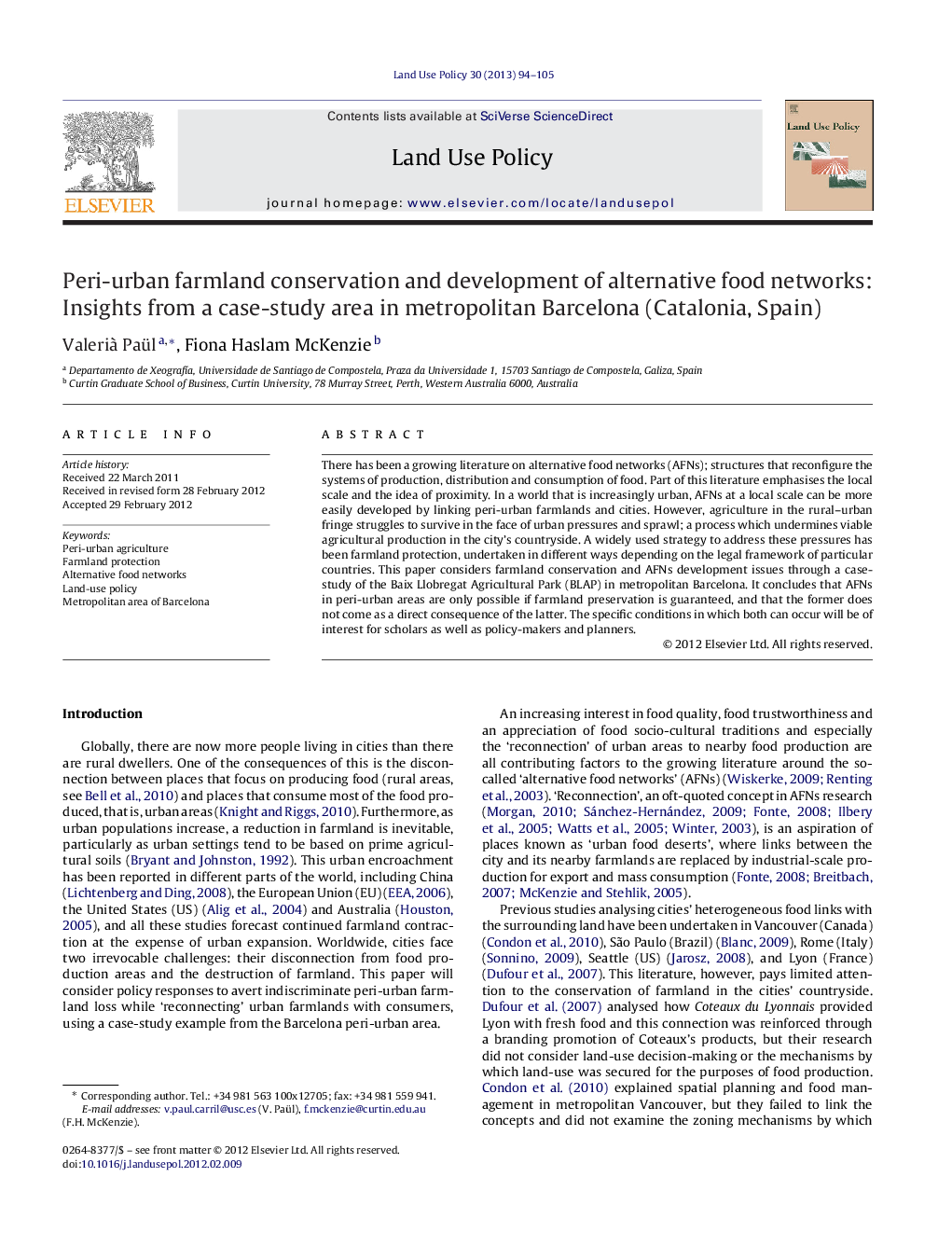| Article ID | Journal | Published Year | Pages | File Type |
|---|---|---|---|---|
| 92970 | Land Use Policy | 2013 | 12 Pages |
There has been a growing literature on alternative food networks (AFNs); structures that reconfigure the systems of production, distribution and consumption of food. Part of this literature emphasises the local scale and the idea of proximity. In a world that is increasingly urban, AFNs at a local scale can be more easily developed by linking peri-urban farmlands and cities. However, agriculture in the rural–urban fringe struggles to survive in the face of urban pressures and sprawl; a process which undermines viable agricultural production in the city's countryside. A widely used strategy to address these pressures has been farmland protection, undertaken in different ways depending on the legal framework of particular countries. This paper considers farmland conservation and AFNs development issues through a case-study of the Baix Llobregat Agricultural Park (BLAP) in metropolitan Barcelona. It concludes that AFNs in peri-urban areas are only possible if farmland preservation is guaranteed, and that the former does not come as a direct consequence of the latter. The specific conditions in which both can occur will be of interest for scholars as well as policy-makers and planners.
► Peri-urban farmlands protection and alternative food networks are examined together. ► A specific case-study is analysed in the metropolitan area of Barcelona. ► Effective peri-urban farmland conservation is not simply achieved by zoning. ► Effective peri-urban farmland conservation requires strategic guidance. ► There is limited scope for alternative food networks without peri-urban farmlands.
